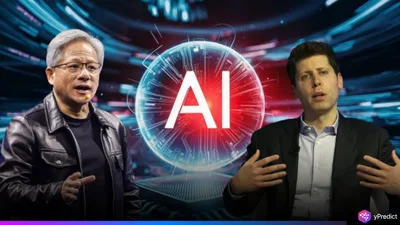
The world of work is undergoing a massive transformation, and according to Nvidia’s Jensen Huang and OpenAI’s Sam Altman, artificial intelligence is at the center of it all.
Speaking separately this week, both CEOs offered strikingly aligned views on how generative AI will reshape the global labor market. The takeaway? AI won’t take all the jobs but it will change every one of them.
Every Job Will Be Different
At the VivaTech 2025 conference in Paris, Nvidia CEO Jensen Huang emphasized that AI is a “new industrial revolution” capable of amplifying productivity across every sector.
He compared the AI revolution to past technological shifts, like the invention of electricity or the internet, arguing that rather than eliminating jobs wholesale, AI will change how they are performed requiring new tools, skills, and workflows.
Nvidia, known for powering many AI models with its GPUs, is actively investing in AI training, research, and deployment at scale. Huang highlighted that creative, analytical, and leadership roles will thrive in an AI-enhanced world.
Sam Altman: “Some Jobs Will Go, But New Ones Will Come”
OpenAI CEO Sam Altman recently reiterated worries about AI-induced disruption, saying that entry-level office positions will be at risk as the tools continue to improve and become more affordable. At a recent event with tech columnist Kara Swisher, Altman reiterated that the future of work will change at a pace quicker than we expect.
Yet he remained optimistic, as new industries and jobs will also be created as has happened in past technological shifts. The problem, he said, is that we are not ready for that adjustment. Altman urged governments and education systems to embrace reskilling and upskilling on a global scale to assist workers in transitioning into a changing job market.
10% of Jobs May Be Automated
Dario Amodei, CEO of Anthropic, took a more cautious view. He estimates a potential 10% of jobs in the U.S. could be automated in the next couple of years. Amodei views generative AI as a potential major disruptor for routine activities, such as occupations in customer service, finance, and administration.
Conclusion
AI is here and it’s not just another tool, but a seismic shift. Nvidia’s Jensen Huang and OpenAI’s Sam Altman believe that while some jobs will disappear, many more will evolve or be created. The challenge isn’t stopping AI it’s keeping up with it.






